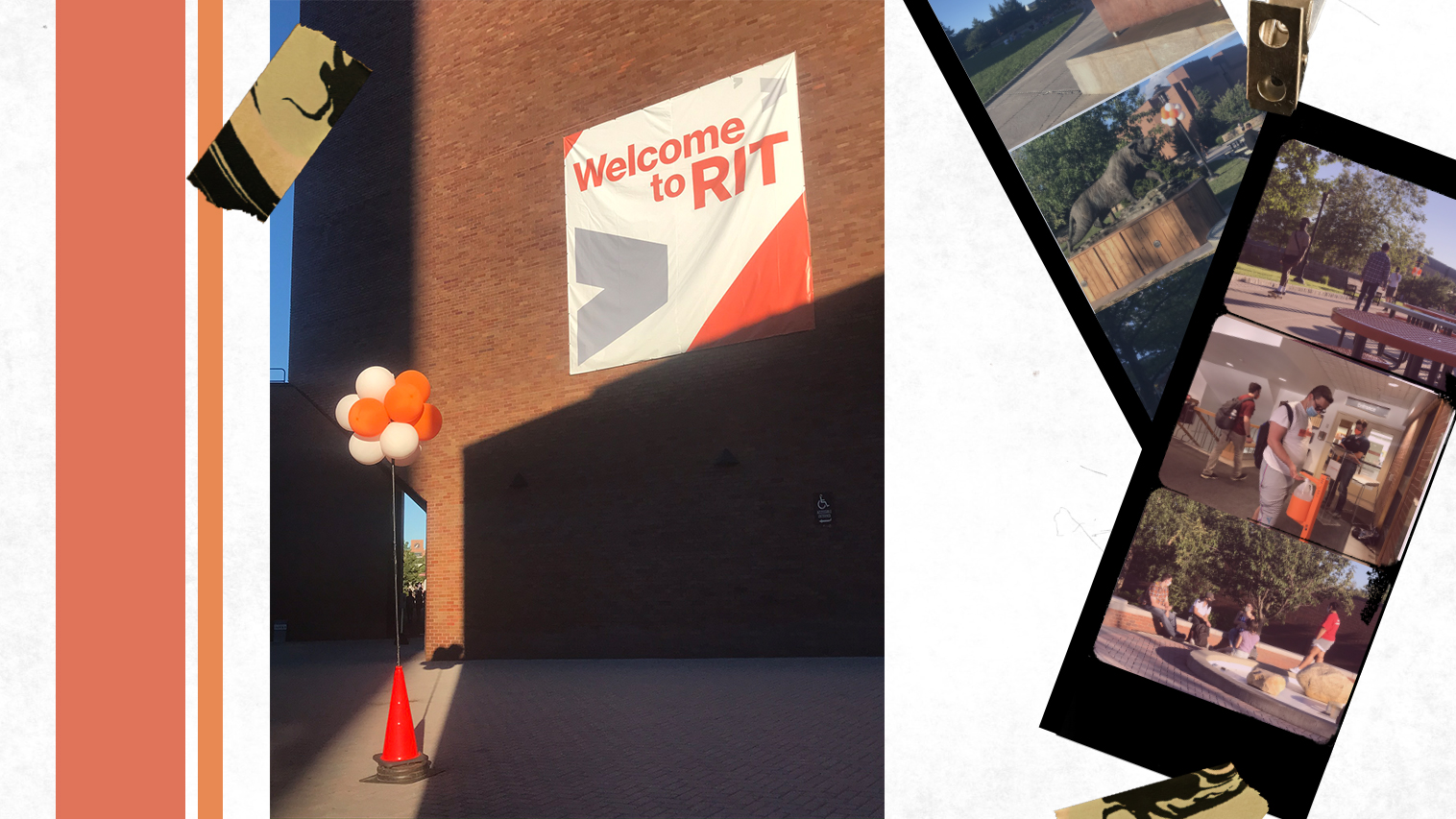The COVID-19 pandemic brought the Spring semester of 2020 to a screeching halt. The sudden change led to many students experiencing a fair amount of pressure in finishing their school year.
Most are hoping things will be different during the fall of 2020 though, as RIT and other campus organizations have had more time to prepare for this new environment.
Enacting Changes
Dr. Wendy Gelbard is the associate vice president of Wellness in Student Affairs. She is also a member of RIT’s Fall Planning Task Force.
The task force, set up by RIT, was in charge of developing creative ways to safely reopen campus in the fall.
When making these decisions, the task force made sure it heard varied voices and opinions. Gelbard specifically led the Community Readiness Committee which held a special role within the overall structure of the task force.
“Our job was to do a pulse check of how different groups on campus felt about our readiness. We were involved in testing their impressions of our plans,” Gelbard said.
The committee was the most diverse of all the groups involved. It consisted of students, parents, faculty, staff and medical professionals. These members discussed and gave feedback on RIT’s proposed policies.
The collaboration between all these groups was very important in creating a varied, albeit different, Fall semester. And with students back on campus, their work is finally paying off.
Introducing Policies
Before students even arrived, RIT wanted safety to be a priority. They mandated COVID-19 tests for all returning students, staff and faculty. Over 60 members of the community were stopped from circulating on campus due to this requirement.
Now that students are back, the approach has shifted from preventative actions to active prevention.
Policy-wise, RIT has implemented a campus-wide social distancing and indoor mask mandate. RIT has introduced two main avenues of enforcement for these policies.
The more hardline approach involves a new COVID-19 violation form on the RIT website. Enter details of the perceived incident involving either student, faculty or staff, and the form will be sent directly to RIT.
The form encourages community accountability from students, staff and faculty.
“Our HR department and student conduct team have committed to processing these allegations in a timely manner,” Gelbard stated.
More light-heartedly though, the task force is in the process of setting up something they’re calling the RIT Ready Crew.
Hoping to bring a respectful and educational approach to enforcing guidelines, the crew will consist of 20 or so students tasked with circulating campus and reminding people about RIT’s COVID-19 policies.
Introducing Infrastructure
While social distancing and masks are obvious indicators of the changes on campus, you may also see some new equipment on campus this semester.
The university’s biggest investment has been into ionic air purifiers. Over 2,000 have been installed this summer throughout residential areas, gathering spaces and educational spaces.
These devices work by shooting ions into the air. These ions then attach to things such as viruses, mold and other organic compounds. When the two types of particles combine, the dangerous ones are rendered neutral.
RIT, along with other universities, have also been pioneering various virus-tracking techniques. The university was recently mentioned in The New York Times for an innovative wastewater testing procedure.
Individuals can shed the virus days prior to showing symptoms. Because of this, 15 residence halls and on-campus apartment complexes will have their sewage tested twice weekly.
“It’s a leading indicator rather than a lagging indicator. It allows us to acknowledge and identify people who have the illness before they even realize they have it,” Gelbard stated.
Preparing all this new equipment over the summer was a hectic process, and while we can thank the task force for their brainstorming, there is one main group to thank for implementation.
Facilities Management Services has been working non-stop to keep campus clean and safe. RIT’s 118 custodians are being aided by 57 contract workers to handle their increased workload.
Most of these changes will most likely stick around long after COVID-19. Longevity was not an afterthought for the task force.
“We’ve been trying to not just plug holes. We have been thinking about what will benefit the campus as a whole,” Gelbard said.
“We’ve been trying to not just plug holes. We have been thinking about what will benefit the campus as a whole.”
Keeping the Campus Community Vibrant
While keeping things safe and healthy is this semester’s top priority, students are also still looking for the on-campus experience they’re used to.
Cameron Glynn, student director of the College Activity Board, is doing his best to oblige.
“We knew we would have to do more virtual events. In terms of in-person though, we’re doing almost all of our events outside,” Glynn stated.
CAB has had to shake their organization up to get things off the ground, but they’ve been rather quick about it.
Fall Fest still debuted on time and still had movies and build-a-buddy. The events were just handled in a unique way suited to the current situation.
The movie events were held outside on two brand-new outdoor screens, while things like build-a-buddy were scheduled over an extended period of time to allow more people to participate.
“We usually envision Fall Fest, as a way for a lot of students to congregate in a single area," Glynn explained. "The event had a different energy this year, but it was still great.”
CAB is also open to new ideas for this semester though. Many clubs have been reaching out to them, trying to find ways to hold events in this new environment.
While things are tough now, there’s always a bit of excitement that comes with new changes and challenges. Luckily, RIT has a strong and supportive community to guide the way.
“I hope this collaboration sticks around,” Glynn said. “We need each other to get through things like this.”
“I hope this collaboration sticks around. We need each other to get through things like this.”








